Posted on 12/30/2022
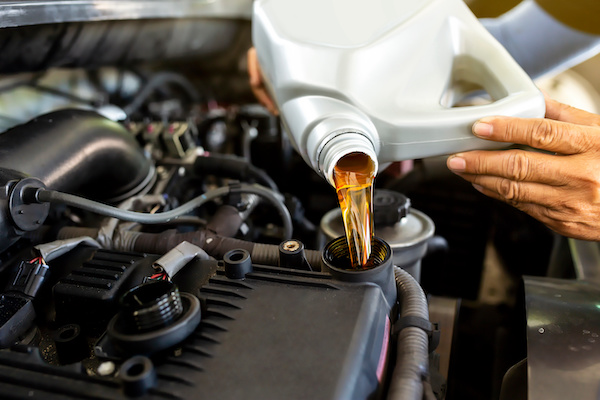
Diesel engines require oil changes more frequently — usually every 5000 km to 8000 km. This is because diesel engines operate at higher temperatures and produce more soot, which can clog up the engine and cause it to lose power. Diesel engines require oil changes more often than gasoline engines because the oil in diesel engines breaks down faster. The oil in diesel engines also gets dirty faster because the engine burns more fuel. How to Perform a Diesel Oil Change Diesel oil changes should not be done at home because they require special equipment and expertise. The process is also more complicated than a standard oil change, so it's best left to the professionals. Here's a quick overview of the diesel oil change process: 1. First, the vehicle must be raised on a lift so that the oil pan is accessible. 2. Next, the oil drain plug is removed and the oil is allowed to drain out. 3. Once the oil has drained, the oil filter is replaced. 4. Finally, new ... read more
Posted on 11/30/2022
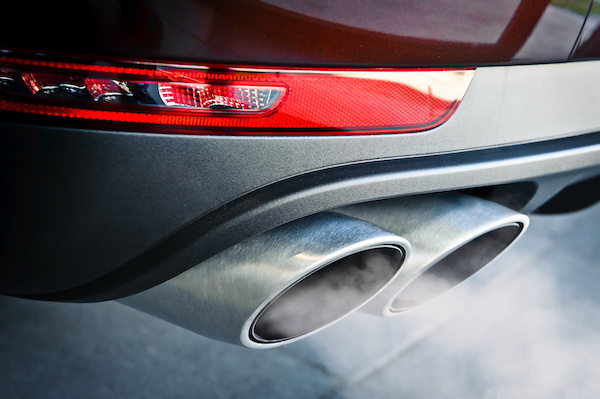
Your muffler is one of many metal pipes that play a major role in the vehicle’s exhaust system. The muffler directs exhaust fumes away from the engine and passenger cabin. This aren’t the best gasses to be inhaling, which is why it is so imperative that your exhaust works. The primary purpose of the muffler is to limit exhaust sounds, so you can drive without making any disturbances or causing a distraction for others. When the muffler fails, it can be very embarrassing and obnoxious for other people to hear. If you suspect your vehicle is due for muffler repairs, keep reading to learn the red flags of a broken muffler. Excess Noise When the muffler is broken or failing, you will notice your vehicle making loud cracking or roaring sounds. The volume of the sound will be significantly louder than what you’ve probably heard before. This noise results from your engine and exhaust system digesting and processing the byproducts of combustion. Engine Misfiring Da ... read more
Posted on 10/28/2022
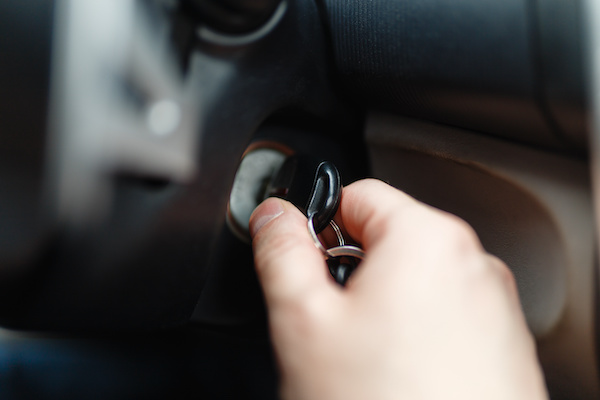
Your car won't start for a variety of reasons. There are certain things you can check on your own before contacting for assistance. Check to see if the steering wheel is locked first. If so, twisting the key in the ignition while moving the steering wheel from side to side will solve this typical problem. This shows that the ignition may turn all the way to the start position without being obstructed by the steering wheel lock. Another easy explanation for why your automobile will crank but not start is a low gas tank. It's possible that you're only on "E" and have run out of gas if you were previously low on fuel (or if your fuel gauge is damaged). Other reasons why your car won't start: Dead car battery: The most frequent cause of a non-starting car is a dead battery. If you have a battery tester, you can use it to check your battery to see if it is weak. Bad starter motor: If the engine won't start despite hearing a single click when you turn t ... read more
Posted on 9/26/2022
.jpeg)
Nearly every car on the road nowadays has several oxygen (O2) sensors. They are a component that contribute to your engine’s overall performance by monitoring and providing a consistent supply of oxygen. The O2 sensors relay these oxygen measurements taken in the exhaust system and send them to the car's computer. If a sensor has gone bad or tripped because of too much or too little of oxygen, it will trigger a warning, often in the form of a check engine light.Oxygen sensors are considered a part of the exhaust system or emissions system. With laws on vehicle emissions stricter nowadays, so have the requirements for vehicle O2 sensors. There is usually one oxygen sensor positioned in front of the catalytic converter and one in each of the car’s exhaust manifolds. Oxygen sensors can go as far as preventing emissions failures by allowing the computer to calibrate with the engine for smooth performance and enhanced fuel efficiency. As mentioned bef ... read more
Posted on 8/26/2022
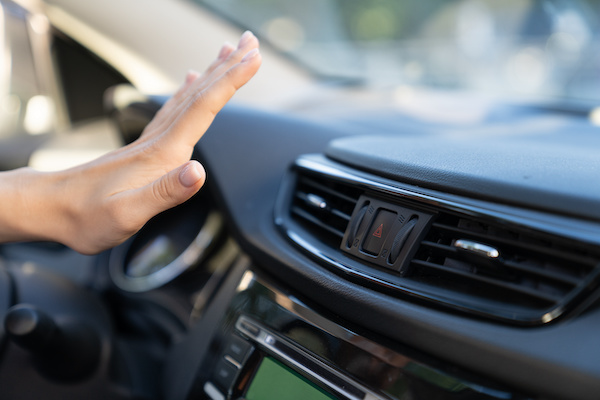
It seems like it is one of THOSE summers in Burnaby, where the heat kicks up in August. If you have to crank the A/C on blast every time you get into your car, you expect nice and cool air in return. But if it is not cooling you down, it means you have an auto A/C problem. There are 5 potential explanations for why your car’s air conditioning is blowing warm or hot air. Read on to learn more: Low or Leaking Refrigerant Your vehicle’s A/C relies on this substance to cool your cabin as it expands and condenses. Refrigerants should be sealed and airtight so that your car’s A/C can run optimally. If there is a leak in the system, your air conditioning will not feel cold. And you will need to repair the leak and have a professional top you off on the correct refrigerant. Electrical Problem The A/C system is electrically powered, meaning that every arrangement of fuses, relays, switches, and battery charge matters. If there is a fault in the electrical sy ... read more
Posted on 7/26/2022

You have all the reasons to worry if you have suddenly noticed your vehicle making strange noises. Automobiles should not make any strange noises. Otherwise, there could be something wrong if you observe a sudden change in the engine noise. It could be a rattling, stuttering, popping, or whizzing sound, as we have discussed below. A Popping/Snapping Sound When You Turn Such noises are common for front- and all-wheel drive vehicles. So, you must replace your constant velocity joints on your front axle if you hear a snapping, clicking, or popping sound during a turn. It may be one or both joints. A broken axle could occur at any time, so it would be best to avoid ignoring these sounds. Chirping or Squealing Noises From the Engine Your vehicle requires immediate attention if it squeals once you accelerate or fire it up. In older cars, worn or loose accessory belts are the primary causes of these sounds. If you have a newer vehicle, it could chirp or squeal when its serpentine belt nee ... read more
Posted on 6/28/2022
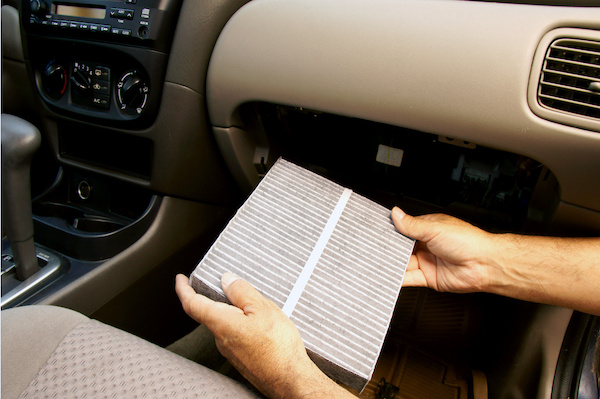
The cabin air filter is a part of the car that is often forgotten about until it causes problems. Typically, this is because they can be hard to reach. However, neglecting to change them can have some uncomfortable side effects. A cabin air filter is similar to the engine air filter, or even your air filter in your home. It prevents polluted and dirty particles from entering your vehicle cabin. Therefore, it serves to give you clean air. As you can imagine, the debris will clog up your filter over time. What Can Happen If You Don’t Change a Dirty Cabin Air Filter Health Problems - A clogged air cabin filter means that contaminants can get into your cabin. If you have allergies, it can be especially problematic. If you or your passengers are sensitive to dust, pollen, or smoke, it can be bothersome. Therefore, you should avoid letting it get to that point. Overworked HVAC System - When the filter is full, your HVAC system can strain to fu ... read more
Posted on 5/24/2022
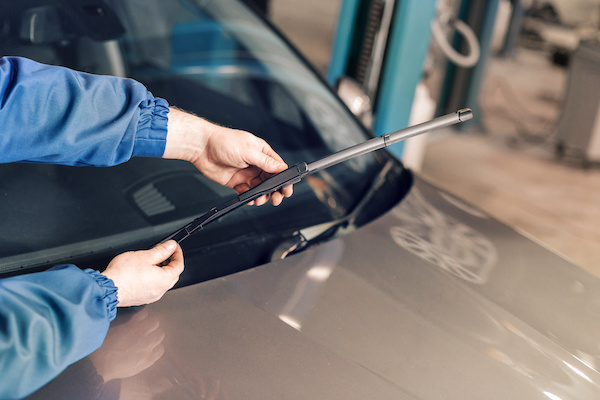
Preparing your automobile for the spring and summer months is no different from preparing it for the winter months. Getting your car maintained by a professional in the spring assures safe driving, increases the market value of your vehicle, and extends its lifespan. Here is a checklist to ensure you get your vehicle ready for spring: Take Your Car in for an Oil Change The engine oil cleans and maintains the temperature of the motor's interior components. Eventually, dirt and debris build up in the oil, leading the filter to get clogged. Make sure your car is running at its peak performance by having your engine oil and filter checked and replaced in the spring. Check Your Tire Pressure and Tread Depth; Install New Winter Tires Tires that are designed for icy conditions, like winter tires, are not as effective or safe in spring. Summertime or all-season tires suitable for both dry and rainy conditions are what you need. Tire pressure is also affected by temperature var ... read more
Posted on 4/27/2022
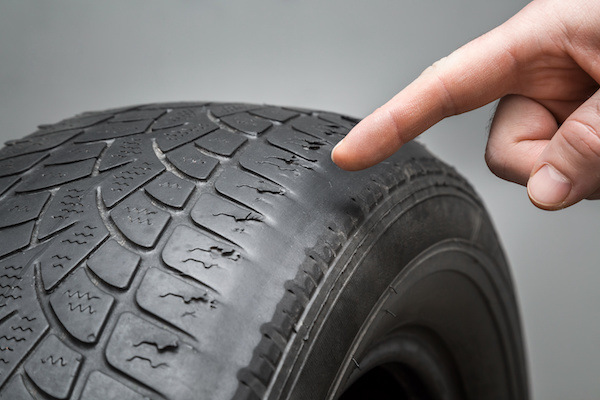
Your car tire tread pattern matters a lot. It impacts your tire performance, such as handling and how much traction they provide. Tire tread wear can tell you if the inflation, angles, and other components are within the recommended specifications. Additionally, your car tires can tell you more about the health and condition of your vehicle. Tire tread wear patterns like edge wear, center wear, cupping, patchy wear, and inner and outer wear can help you understand problems your car may be having. Common Types of Tire Tread Wear Patterns and What they Mean Inner or Outer Wear If your tire's inner or outer edge is wearing faster than the rest of the tread, your car's wheel alignment may be out of specification. This tread wear pattern causes your wheels to lean too much to one side caused by misalignment. Center Wear If your tires are wearing out more rapidly at the center, it's a sign of over-inflation. Filling your tires over the recommended pressure makes them ride al ... read more
Posted on 3/24/2022
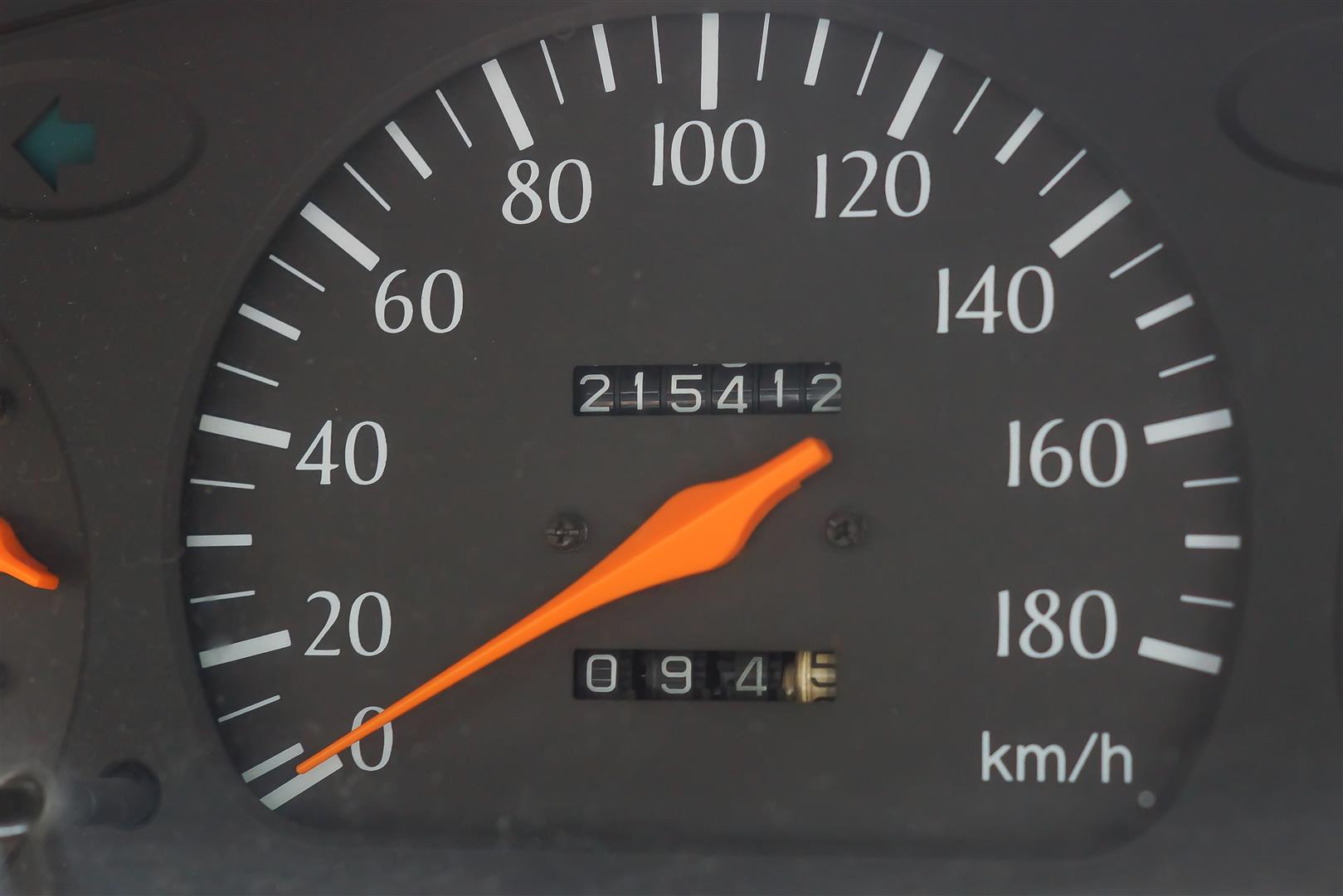
Can you imagine driving without any knowledge of your speed? Scary thought, right? The speedometer is a device located on your dashboard that displays how fast your car moves. Today, most speedometers are electronic and are a standard part of every vehicle. The Most Common Problem with Speedometers Seldom will your speedometer stop working out of the blue. While speedometer problems aren't as common, they're not impossible. Inaccurate speed is a prevalent issue within older vehicles, where the km/h may be lower or higher than the actual speed of your car. Sometimes, your speedometer may even erratically behave while you are driving. Whenever you catch these signs, it is important you get your car to an auto repair shop shortly. Diagnosing the Speedometer If one of your concerns is speed accuracy, our technicians will happily test it for you. You can even do this on your own with a mile marker on the highway and a stopwatch. Furthermore, we will thoroug ... read more